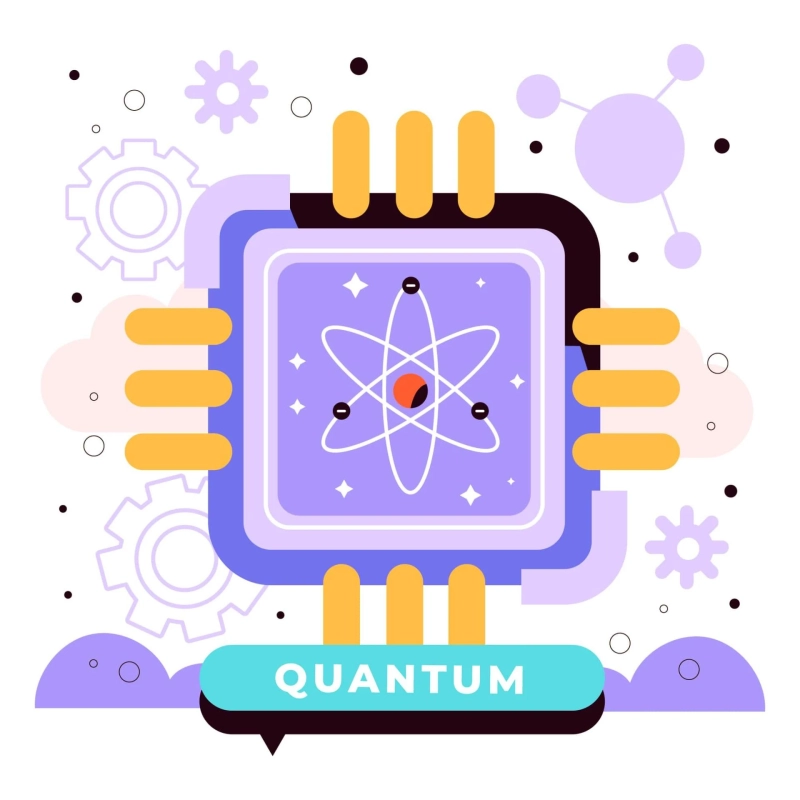Unraveling the quantum enigma: Discover the fusion of quantum computing and machine learning, opening doors to unprecedented technological advancements.
The field of technology has witnessed remarkable advancements in recent years, and two of the most exciting and transformative fields are quantum computing and machine learning. Quantum computing, with its ability to process complex calculations using quantum bits or qubits, and machine learning, with its ability to extract meaningful insights from data, have revolutionized various industries. But what happens when these two cutting-edge domains converge?
Quantum computing involves harnessing the principles of quantum mechanics to create computing systems that are exponentially more powerful than classical computers. On the other hand, machine learning is a branch of artificial intelligence that focuses on developing algorithms that enable computers to learn from and make predictions or decisions based on data. The fusion of these two domains holds immense potential for solving complex problems that were previously considered intractable.
1. Understanding Quantum Computing
Before delving into the intersection of quantum computing and machine learning, it is crucial to grasp the fundamentals of quantum computing. At the heart of quantum computing lies the concept of qubits. Unlike classical bits, which can represent either a 0 or a 1, qubits can exist in a superposition of states, allowing for parallel processing and increased computational power. Quantum gates and algorithms further enhance the capabilities of quantum computers.
2. The Basics of Machine Learning
Machine learning, on the other hand, focuses on training computational models to identify patterns and make predictions or decisions without being explicitly programmed. It can be broadly categorized into supervised and unsupervised learning. In supervised learning, algorithms learn from labeled data to make predictions or classifications, while unsupervised learning algorithms identify patterns and structures in unlabeled data.
3. Quantum Machine Learning (QML)
Quantum Machine Learning (QML) is an emerging field that combines the principles of quantum computing and machine learning. QML leverages the unique properties of quantum systems to enhance the efficiency and effectiveness of machine learning algorithms. One of the key advantages of QML is its ability to represent and process data in a quantum state, leading to potentially exponential speed-ups in certain computations.
4. Quantum Algorithms for Machine Learning
Various quantum algorithms have been developed specifically for machine learning tasks. Quantum support vector machines and quantum neural networks are among the most prominent examples. These algorithms take advantage of quantum superposition and entanglement to perform complex calculations that outpace classical counterparts. By harnessing the power of qubits, these algorithms have the potential to revolutionize the field of machine learning.
5. Challenges and Opportunities
While quantum machine learning offers promising possibilities, it also faces several challenges. The fragile nature of qubits and the need for error correction pose significant hurdles. Additionally, the integration of quantum hardware and software presents practical limitations. However, with ongoing research and advancements, these challenges can be overcome. The opportunities that quantum machine learning presents in terms of breakthroughs in healthcare, finance, optimization, and other domains cannot be overlooked.
6. Real-World Applications
The intersection of quantum computing and machine learning has already started to bear fruit in real-world applications. Quantum machine learning algorithms have been applied to drug discovery, financial modeling, image recognition, and more. These applications demonstrate the potential to solve complex problems more efficiently and accurately, opening new doors for innovation across various sectors.
7. The Future of Quantum Machine Learning
Looking ahead, the future of quantum machine learning appears promising. With continuous advancements in quantum hardware, algorithms, and quantum error correction, the field is expected to unlock even greater computational power. Quantum machine learning has the potential to reshape industries, enabling faster and more accurate decision-making, optimization of complex systems, and accelerated scientific discoveries.
Conclusion
In conclusion, the convergence of quantum computing and machine learning holds tremendous potential for transforming our world. The ability to leverage the power of qubits and quantum algorithms to enhance machine learning tasks can revolutionize industries, solve previously intractable problems, and unlock new frontiers of knowledge. As ongoing research and development continue to drive progress, the future of quantum machine learning looks incredibly promising.
Frequently Asked Questions (FAQs)
Q: What is the difference between classical machine learning and quantum machine learning?
A: Quantum machine learning leverages the principles of quantum mechanics and quantum computing to enhance traditional machine learning algorithms. It harnesses the power of qubits and quantum operations to perform complex calculations more efficiently and potentially achieve exponential speed-ups.
Q: Can quantum machine learning algorithms outperform classical algorithms?
A: Quantum machine learning algorithms have the potential to outperform classical algorithms in certain applications. However, the true extent of their superiority depends on factors such as the problem being solved, the size of the dataset, and the capabilities of the quantum hardware being used.
Q: Are there any practical limitations to implementing quantum machine learning?
A: Yes, there are practical limitations to implementing quantum machine learning. The fragile nature of qubits and the need for error correction pose significant challenges. Additionally, the integration of quantum hardware and software requires careful optimization and development.
Q: Is quantum machine learning accessible to everyone?
A: Currently, quantum machine learning is primarily accessible to researchers, academics, and organizations with access to specialized quantum hardware and expertise. However, as the field progresses and quantum technologies become more widely available, the accessibility of quantum machine learning is expected to increase.


